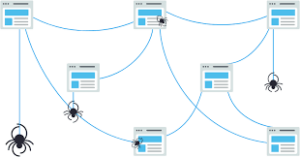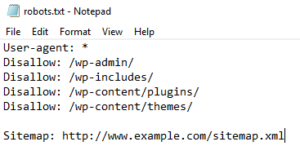Search Engine Optimization (SEO) is the process of making a website search engine friendly. Because of SEO, web pages rank so high in Google search results and can drive organic traffic. Off-Page, On-Page, and Technical optimization are all broad subparts of SEO. For a website to generate quality traffic, it must balance these elements to achieve the sweet spot.
Websites have a lot of moving parts, so the success of your website marketing depends on optimizing your website to be functional, fast, and user-friendly.
Technical SEO is important because it essentially ensures that your website is easy to navigate and free of any technical issues that prevent it from being understood and ranked by search engines or it helps to improve organic rankings.
For more information about technical SEO and how to incorporate it into your marketing efforts, refer to the following technical SEO introduction for beginners:
What is Technical SEO
Technical SEO is the process of ensuring that a website meets the technical requirements of modern search engines with the goal to improved organic rankings. Important elements of technical SEO include crawling, indexing and website architecture, etc. The goal is to improve rankings. Technical SEO is part of on-page SEO that focuses on improving elements on your website to get higher rankings. It’s the opposite of off-page SEO, which is about generating exposure for a website through other channels.
Importance of Technical SEO:
Many website owners know the importance of on-page SEO and the content, but overlook technical SEO because it seems complicated technical SEO is critical because it helps search engines crawl your site and also rank it in the search results to begin.
The benefit of technical SEO is that you are likely to generate more organic traffic if you have a fully-optimized site, but there are countless individual benefits to implementing technical SEO.

Marketing of your Technical SEO Checklist:
There are a lot of factors that go into having great technical SEO and it can be hard to keep track of all of them. Here, we have some important characteristics of a technically optimized website.
1. Website Speed:
Nowadays, web pages need to load fast. People are impatient and don’t want to wait for a page to open. Google already knows slow web pages offer a less-than-optimal experience. Therefore they prefer web pages that load faster. So having pages that load quickly is more important.

2. Structure of Website:
Structured data helps search engines better understand your content, website, or even your business. it should be organized. With structured data, you can tell the search engine about your site or what kind of product you sell, it will allow you to provide all kinds of details about those products.

3. It’s crawlable for search engines
Crawlability is the foundation of your technical SEO strategy. Search bots will crawl your pages to gather information about your site. If these bots are somehow blocked from crawling, they can’t index or rank your pages.

4. Robot. txt file:
you can give robots directions on your site by using the robot.txt file. it’s a very powerful tool, which should be handled carefully. It is a text file used for SEO, containing commands for the search engines indexing robots that specify pages that can or cannot be indexed.

5. The meta robot tags
Meta tags are code that tells search engines important information about your web page, such as how they should display it in search results. They also tell browsers how to display it to visitors.

6. Ensure your site is mobile-friendly
A responsive website design adjusts itself automatically so that it can be navigated and it can be read easily on any device. Google is clear about the fact that having a responsive site is considered a very significant ranking signal by its algorithms.
With the introduction of Google’s mobile-first approach to indexing content, a responsive website is now more important, So it makes sense to ensure that your website is fully responsive and will display in the best format possible for mobiles, etc.

7. Create an XML site map
An XML sitemap is needed for Google to find your site’s URLs in the age of mobile-first indexing and AMP. The main purpose of your sitemap is to show search engines all of your live pages, so you want all the URLs in it to point to live pages.

8. No index tags on thin or duplicate pages
The majority of websites will have pages with duplicate content. That’s fine. But when those duplicate content pages are indexed, this becomes a problem. The no-index tag is used to prevent search engines from indexing a given page.

9. Scan your website for dead links
Dead links are a common issue for most sites due to a process called link rot. This refers to the trend of sites having fewer working links over time since web pages and sites get deleted for several reasons. In other words, things change or fall apart.

10. Inspect URLs with Google Search Console
The Google Search Console’s Inspect feature can help you figure out what’s going on. It’ll tell you why a page isn’t being indexed. However, you can see how Google renders pages that are indexed. That way, you can double-check that Google can crawl and index every single piece of content on that page.

11. Add SSL Certificates

Conclusion
Many experts believe that the rapid advancements in AI, particularly machine learning, will one day help Google understand websites perfectly. And in the process, making technical SEO obsolete.
Google’s complexity appears to be doubling every year, but this has only increased the importance of technical SEO. Instead of disappearing, we believe technical SEO will fragment into more areas: mobile technical SEO, crawl optimization, and traditional technical SEO. All of these fields are developing independently and becoming more complex for the average publisher.
Without Technical SEO ” You cannot Rank your Website”





